第56章
ARGUMENT.
IN THIS BOOK IT IS PROVED THAT THE EXTENT AND LONG DURATION OF THEROMAN EMPIRE IS TO BE ASCRIBED, NOT TO JOVE OR THE GODS OF THE HEATHEN, TO WHOM INDIVIDUALLY SCARCE EVEN SINGLE THINGS AND THE VERY BASEST FUNCTIONSWERE BELIEVED TO BE ENTRUSTED, BUT TO THE ONE TRUE GOD, THE AUTHOR OF FELICITY, BY WHOSE POWER AND JUDGMENT EARTHLY KINGDOMS ARE FOUNDED AND MAINTAINED.
CHAP.1.--OF THE THINGS WHICH HAVE BEEN DISCUSSEDIN THE FIRST BOOK.
HAVING begun to speak of the city of God, I have thought it necessary first of all to reply to its enemies, who, eagerly pursuing earthly joys and gaping after transitory things, throw the blame of all the sorrow they suffer in them--rather through the compassion of God in admonishing than His severity in punishing--on the Christian religion, which is the one salutary and true religion.And since there is among them also an unlearned rabble, they are stirred up as by the authority of the learned to hate us more bitterly, thinking in their inexperience that things which have happened unwontedly in their days were not wont to happen in other times gone by; and whereas this opinion of theirs is confirmed even by those who know that it is false, and yet dissemble their knowledge in order that they may seem to have just cause for murmuring against us, it was necessary, from books in which their authors recorded and published the history of bygone times that it might be known, to demonstrate that it is far otherwise than they think; and at the same time to teach that the false gods, whom they openly worshipped, or still worship in secret, are most unclean spirits, and most malignant and deceitful demons, even to such a pitch that they take delight in crimes which, whether real or only fictitious, are yet their own, which it has been their will to have celebrated in honor of them at their own festivals; so that human infirmity cannot be called back from the perpetration of damnable deeds, so long as authority is furnished for imitating them that seems even divine.These things we have proved, not from our own conjectures, but partly from recent memory, because we ourselves have seen such things celebrated, and to such deities, partly from the writings of those who have left these things on record to posterity, not as if in reproach but as in honor of their own gods.Thus Varro, a most learned man among them, and of the weightiest authority, when he made separate books concerning things human and things divine, distributing some among the human, others among the divine, according to the special dignity of each, placed the scenic plays not at all among things human, but among things divine; though, certainly, if only there were good and honest men in the state, the scenic plays ought not to be allowed even among things human.And this he did not on his own authority, but because, being born and educated at Rome, he found them among the divine things.
Now as we briefly stated in the end of the first book what we intended afterwards to discuss, and as we have disposed of a part of this in the next two books, we see what our readers will expect us now to take up.
CHAP.2.--OF THOSE THINGS WHICH ARE CONTAINEDIN BOOKS SECOND AND THIRD.